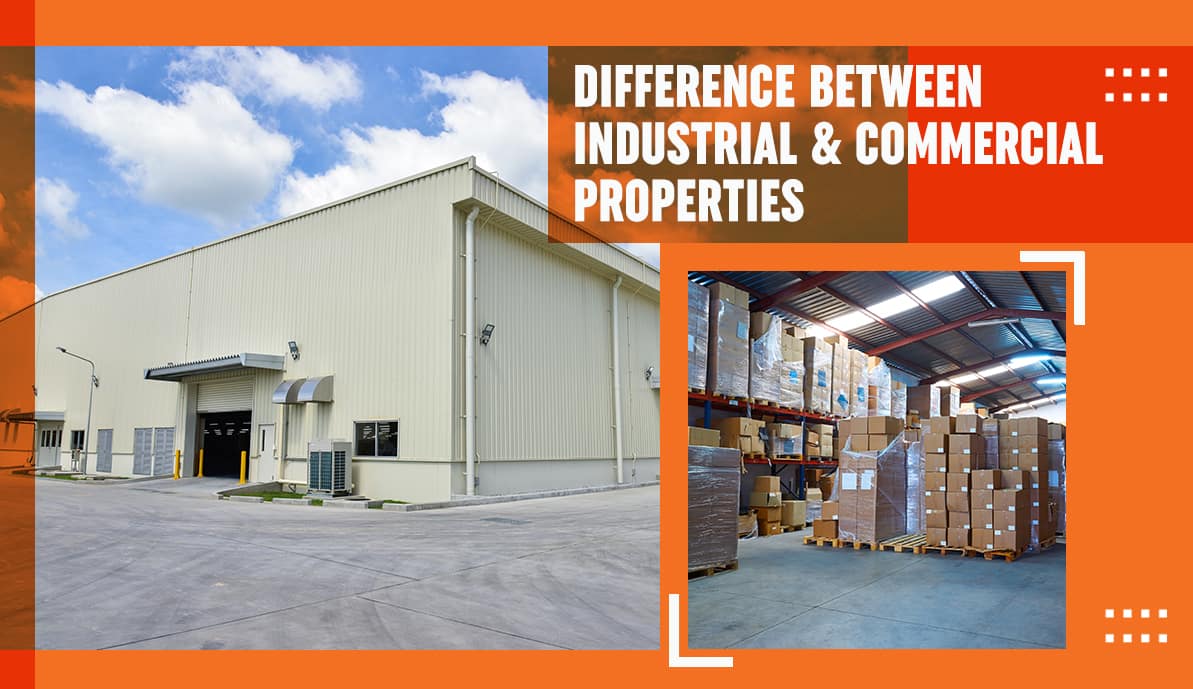Not all real estate is built the same. Whether you’re investing, leasing, or planning future operations, understanding the distinction between property types is critical. Industrial and commercial properties might seem similar at first glance, but their functions, value, and legal considerations differ significantly. Knowing which one aligns with your business goals helps avoid costly mistakes and unlocks smarter investments.
What Is an Industrial Property?
Industrial properties are real estate used for manufacturing, warehousing, logistics, and heavy operations. These spaces often accommodate machinery, storage facilities, distribution hubs, and factories. Located near highways or city outskirts, they are designed to handle bulk movement and industrial-grade infrastructure. A buyer seeking industrial land for sale in Kolkata is typically looking for space to set up production units or logistics centers.
Subtypes include:
Heavy Manufacturing: Facilities with large equipment and heavy-duty operations.
Light Assembly: Space for assembling, storing, and packaging goods.
Warehouse/Distribution: Storage hubs with access for trucks and freight movement.
What Is a Commercial Property?
Commercial properties include buildings used for retail, office, hospitality, and entertainment purposes. These are designed to serve customers directly. Located in urban hubs or business zones, these properties attract daily footfall. If you’re browsing commercial properties for sale, you’re likely seeking locations for shops, offices, restaurants, or salons.
Common types are:
- Retail Buildings: Malls, shopping complexes, and standalone stores.
- Office Spaces: Corporate buildings and co-working hubs.
- Hospitality Units: Hotels, motels, and service apartments.
Understanding the Key Differences
Before diving into property investment, it is crucial to distinguish how each type serves business needs. Below is a comparative table to help clarify these differences:
Industrial vs. Commercial Properties – A Detailed Comparison
| Difference | Industrial Property | Commercial Property |
| Purpose | Manufacturing, assembly, warehousing, and logistics | Retail, service, and customer-facing businesses |
| Location | City outskirts or near highways for easy transportation | Central business districts or urban markets |
| Design and Build | Large open spaces, high ceilings, and loading docks | Decorative storefronts, segmented interior layout |
| Utility Requirements | Heavy power, water supply, waste management | Moderate utility needs, focus on aesthetics |
| Zoning Laws | Subject to strict zoning and environmental regulations | Easier to get permits, but it varies by business type |
| Footfall Needs | Minimal public interaction, mostly employee-oriented | Requires high customer footfall |
| Resale/Lease Value | Depends on industrial demand and location | Influenced by local economy and retail trends |
| Maintenance | Lower day-to-day aesthetic maintenance | Higher maintenance for visual appeal and ambiance |
Why We Should Keep the Differences in Mind Before Making a Decision?
Choosing between an industrial or commercial property isn’t just about cost. Each serves a unique business function and offers different returns. If your venture involves manufacturing or bulk storage, industrial land for sale in Kolkata makes practical and financial sense. It offers scalability, transport access, and long-term viability for operations.
In contrast, for customer-facing enterprises like salons, cafes, or retail chains, commercial properties for sale deliver visibility, branding, and walk-in traffic. Commercial spaces also often come with established footfall patterns, which directly impact business performance.
Ignoring these core differences can lead to major pitfalls. A manufacturing unit cannot operate effectively in a retail setting, just as a luxury boutique cannot thrive in an industrial park.
Understanding compliance, zoning rules, and investment goals can help make better real estate decisions. If you’re unsure, consult real estate advisors familiar with local regulations and market demand.
Thinking long term? Consider maintenance, expansion potential, and access to your target audience. These factors influence not just your operations but your business reputation as well.
It’s also worth noting that many buyers seek industrial land for sale in Kolkata to capitalize on the city’s growing logistics sector. The city’s outskirts are becoming industrial hubs, offering better ROI and scalable setups. Similarly, buyers interested in commercial properties for sale are eyeing prime areas like central Kolkata, where commercial activity is booming.
The Bottom Line
Investing in real estate is more than just picking a plot or building. It’s about aligning your property type with your business model. Knowing the difference between industrial and commercial properties saves time, boosts returns, and ensures smoother operations. By understanding your needs and matching them with the right property type, you’re setting your business up for success. Always research local trends, regulations, and market dynamics before closing a deal. The right property can become the backbone of your growing enterprise.









